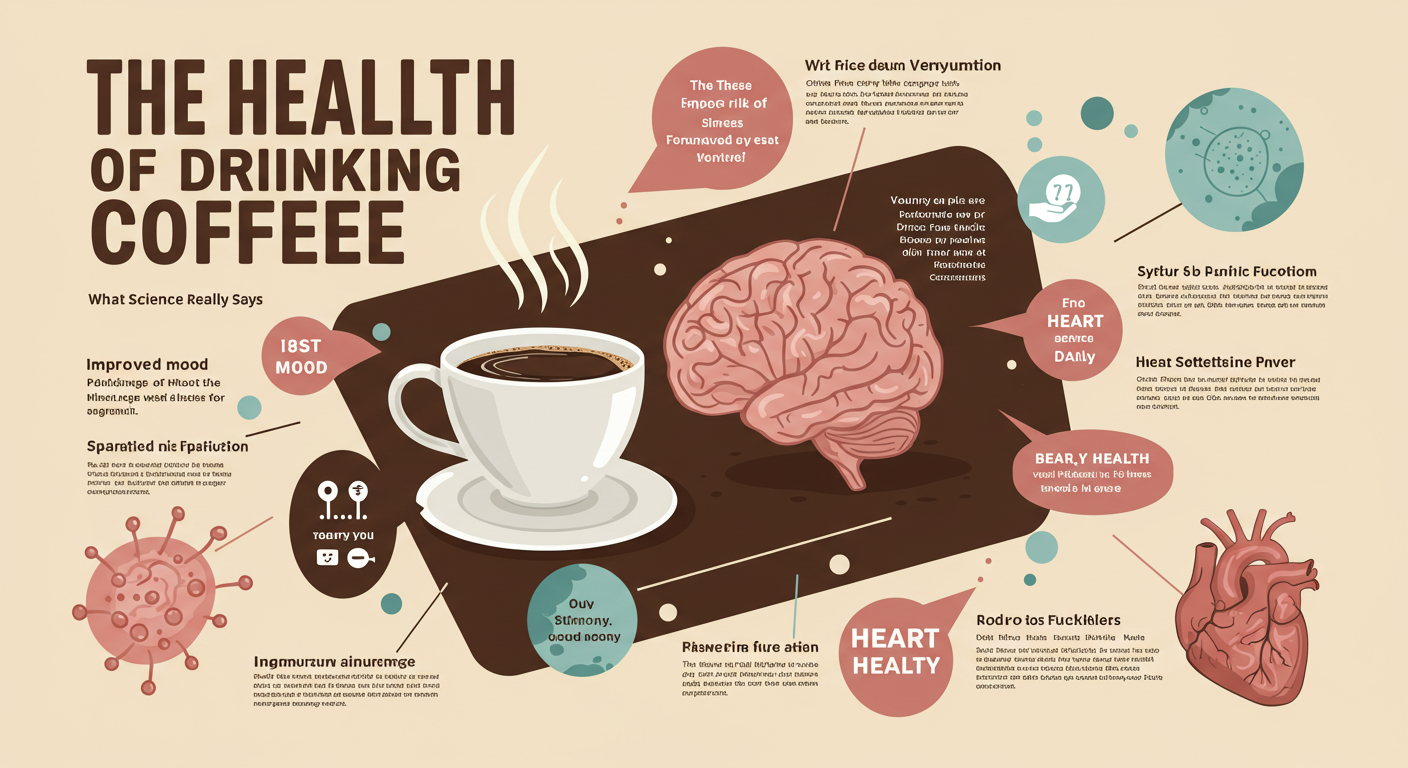Coffee isn’t just a flavorful morning ritual — it’s also packed with powerful compounds that can benefit your body and mind. For years, coffee had a bad reputation, but recent research has flipped the narrative. Today, science shows that moderate coffee consumption may lead to a healthier, longer life. But what exactly does that mean?
Let’s explore the real, evidence-backed health benefits of drinking coffee — and how to enjoy them responsibly.
1. Coffee Is Loaded With Antioxidants
One of coffee’s most impressive benefits is its antioxidant content. In fact, for many people, coffee is the largest source of antioxidants in their diet — even more than fruits and vegetables.
These antioxidants, such as chlorogenic acid and polyphenols, help protect your cells from oxidative stress, which plays a role in aging and many chronic diseases.
2. It Boosts Brain Function and Mental Alertness
The most obvious benefit? Caffeine, coffee’s most active compound.
Caffeine is a natural stimulant that blocks the neurotransmitter adenosine, which promotes sleep and relaxation. As a result, caffeine boosts other neurotransmitters like dopamine and norepinephrine, improving:
- Mood
- Memory
- Reaction time
- Focus
- Energy levels
This is why coffee is so popular among students, professionals, and anyone needing a brain boost.
3. Coffee May Reduce the Risk of Neurodegenerative Diseases
Numerous studies suggest that regular coffee drinkers may have a lower risk of Alzheimer’s and Parkinson’s diseases.
In particular:
- Drinking 3–5 cups of coffee per day has been associated with a 65% reduced risk of Alzheimer’s disease.
- Caffeine intake is linked to a reduced risk of developing Parkinson’s, especially in men.
Researchers believe that the antioxidants and caffeine work together to protect brain cells.
4. It Can Enhance Physical Performance
Caffeine increases adrenaline levels and breaks down body fat, making free fatty acids available for energy. This makes coffee a great pre-workout drink.
Benefits include:
- Increased endurance
- Improved reaction time
- Greater physical output
That’s why many athletes consume coffee 30–60 minutes before training or competition.
5. Coffee May Help Burn Fat
Caffeine is found in almost every commercial fat-burning supplement — and for good reason. It’s one of the few natural substances proven to aid fat burning and increase metabolic rate.
Studies have shown that caffeine can increase fat burning by 10–29%, depending on the individual and their level of tolerance.
6. It Supports Heart Health (In Moderation)
Moderate coffee consumption (3–4 cups per day) has been linked to a reduced risk of heart disease and stroke in several studies.
While caffeine may cause a short-term increase in blood pressure, it does not lead to long-term hypertension in most people. In fact, coffee drinkers may have a slightly lower risk of heart failure.
7. It Could Protect Against Type 2 Diabetes
According to multiple studies, drinking coffee regularly may lower the risk of developing type 2 diabetes by 23–50%.
This effect is likely due to the antioxidants in coffee, as well as its ability to improve insulin sensitivity and reduce inflammation.
8. Coffee Might Help You Live Longer
Several large-scale studies have shown a link between coffee consumption and reduced risk of early death. In one study, those who drank coffee were 20% less likely to die over a 20-year period.
This is likely because coffee drinkers tend to have a lower risk of:
- Heart disease
- Stroke
- Type 2 diabetes
- Certain cancers (like liver and colorectal)
How Much Coffee Is Too Much?
While coffee has many benefits, too much of a good thing can backfire. Here are a few guidelines to stay on the safe side:
- Recommended limit: Up to 400 mg of caffeine per day, roughly 3–4 cups of brewed coffee
- Pregnant women: Should limit caffeine to 200 mg per day
- Children and teens: Should avoid or greatly limit caffeine
Too much caffeine can lead to:
- Anxiety
- Insomnia
- Rapid heartbeat
- Digestive issues
What About Decaf?
Decaf coffee still contains antioxidants and some beneficial compounds — just with less caffeine. It’s a good option for people who are sensitive to caffeine or want to enjoy coffee later in the day.
Final Word: Coffee Can Be Part of a Healthy Lifestyle
When enjoyed in moderation and without excessive sugar or high-fat additives, coffee can be a healthy part of your daily routine. It not only fuels your mind and body but may also protect you against some of the most common chronic diseases.
As always, it’s important to listen to your body. If coffee makes you anxious or disrupts your sleep, it might be worth cutting back. But for most people, that daily cup (or two) is something to enjoy — and feel good about.


